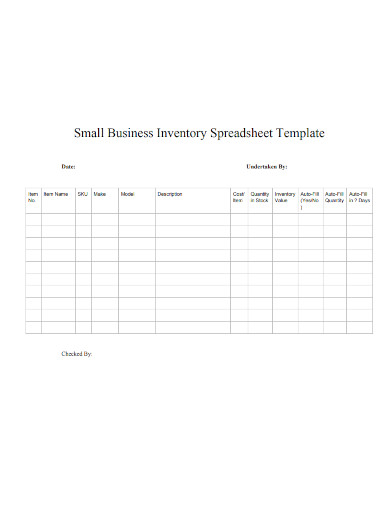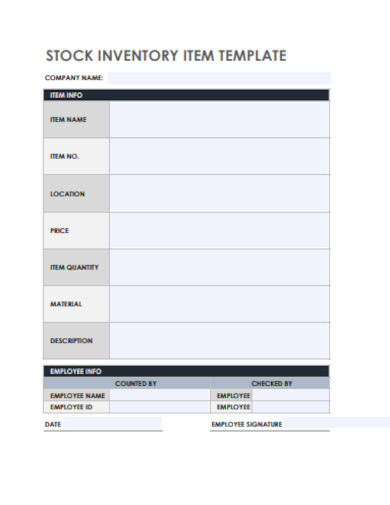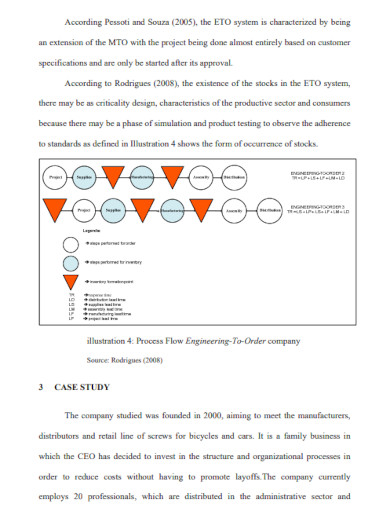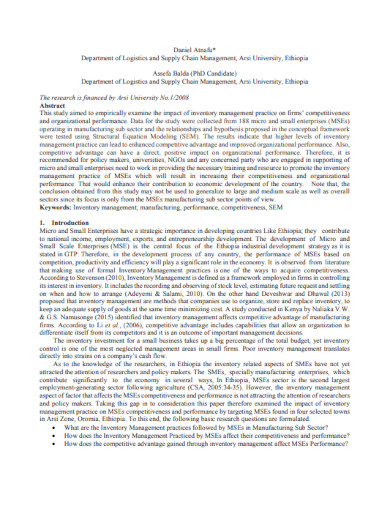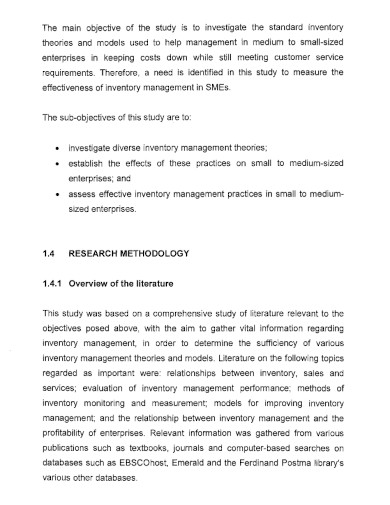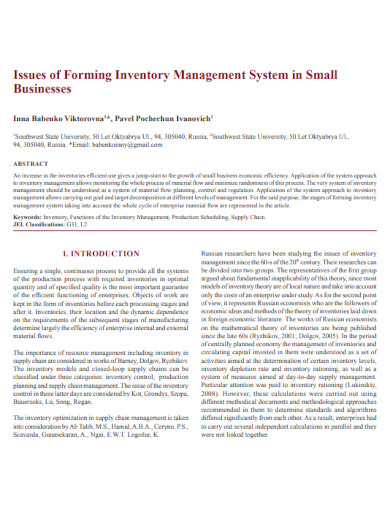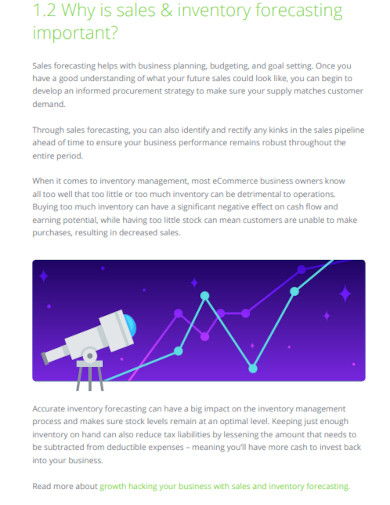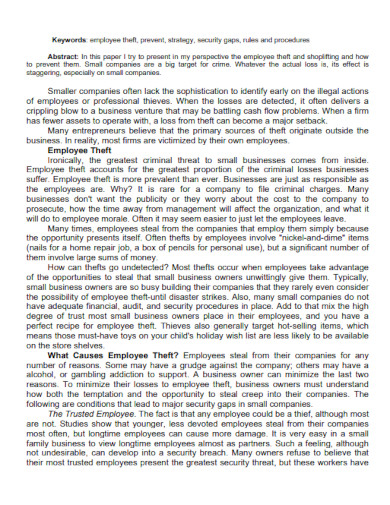On the surface, inventory management appears to be a simple concept: how much supply do we have on hand for each of the markets we operate? But the situation is far more convoluted. Inventory management includes tracking the products in your warehouse, as well as the commodities and other supplies essential to maintain your firm running. Inventory management is more than just a tally of what is; it also include forecasting what “will be” so that the company has adequate product, raw materials, and supplies to meet the requirements of customers. When you have too much merchandise on hand, you’re wasting money. If you carry too little, you potentially lose money on sales.
7+ Small Business Inventory Samples
Inventory management is the method of inventory, in which you use data from your inventory sheet to generate meaningful data, but it doesn’t require a mastery of data analytics; all you need is a little exposure. In fact, most of the math is mechanized with a specific inventory control system. Inventory management allows you to keep track of sales, exports, and production so you can know which items are selling, where they are selling, and in what quantities. It allows you to forecast your whole supply and demand curve, alter shipments and deliveries, or even manufacturing, to perfectly suit your demands. (It’s science, not magic, we guarantee!) All of this enables you to lower inventory expenses and increase profits.
1. Small Business Inventory Spreadsheet
2. Small Business Inventory Managment
3. Analysis Inventory for Small Business
4. Inventory Management Small Enterprise
5. Effective Inventory for Small Business
6. Forming Inventory for Small Business
7. Sales Inventory Forecasting for Small Business
8. Small Business Protecting Inventory Theft
Why Is Inventory Management Critical for Small Businesses?
Customer service
Inventory management is essential for customer service since it allows you to avoid mistakes like allowing clients to request items that are no longer available. A decent inventory management system will also help to monitor output and backorders, allowing you to inform interested clients when the item will be available. Backorders, or orders placed when a product is unavailable for shipment, are also valuable for monitoring demand and improving the availability of high-demand commodities.
Theft control
While theft isn’t always an issue for small businesses, especially those that are solely online, it becomes critical when you hire workers or open a physical store. Inventory management lets you monitor how many things you have on hand at any given time, as well as the revenue generated from sales, making it easy to spot when something goes missing. Hopefully, this will never happen, but it’s something to consider.
Financial management
By automatically entering sales value when you sell a product, expenses of purchasing stock, and, depending on what you add to your inventory management system, cost of transports, gas, and replenishing, you can optimize your bookkeeping.
Supply and demand
Long-term market dynamics data can help you figure out which products sell well, which consumers need more of, and which you should drop.
Product tracking
Product monitoring saves time and makes your inventory based on which things sell well and which don’t. This manner, instead of marketing for things that don’t sell, you may market the ones that do.
Even with the strongest inventory management strategy in place, problems might arise when you need supplies right away to complete an order. Businesses are at the control of their distributors when this transpires. If you have a problem with quality control or a disagreement with a purchase order (PO), having a good connection with your supplier will help you rapidly overcome these difficulties. By keeping with the same suppliers over time, meeting suppliers in person at trade fairs, and, perhaps most crucially, paying bill on time, retail and ecommerce firms can create great relationships with product suppliers.
[/ns_row]
FAQs
What is the first step in organizing an inventory?
Setting up your stock and supplier information in a reliable and accessible system is the first step in organizing your inventory. Manual tracking methods, such as spreadsheets, are used by some firms. However, using a point-of-sale (POS) system that keeps a vendor directory and searchable product pages for you is the ideal option for retailers.
Why is it important to check received items against your PO?
It’s extremely vital to double-check all things received against your PO. Packing papers, which specify the products and amounts in your shipment, are usually included by suppliers. While the packing slip will most likely match the physical shipment, if the supplier made an error during order entry, the packing slip will not match your PO, and the numbers will be off. You run the danger of thinking you received stock that didn’t actually arrive if you don’t discover order discrepancies by comparing received items to your PO. Stock shortages, backorders, and, ultimately, cash losses result from this.
A effective inventory management system ensures that you really have a honest assessment of your supply, allowing you to reduce waste and give your consumers with the merchandise and experience they expect. These methods can help you set up and simplify your operations, whether you’re trying to master the basics of how to arrange inventory for small businesses or revive a present framework that has gotten unorganized.
Related Posts
Sample Business Card Templates
Sample Cashier Job Descriptions
Questionnaire Samples
FREE 10+ Sample HR Resource Templates in PDF
FREE 10+ HR Consulting Business Plan Samples in MS Word | Google Docs | Pages | PDF
FREE 49+ Sample Job Descriptions in PDF | MS Word
FREE 16+ Nonprofit Budget Samples in PDF | MS Word | Excel | Google Docs | Google Sheets | Numbers | Pages
FREE 13+ Academic Calendar Templates in Google Docs | MS Word | Pages | PDF
FREE 10+ How to Create an Executive Summary Samples in Google Docs | MS Word | Pages | PDF
FREE 23+ Sample Event Calendar Templates in PDF | MS Word | Google Docs | Apple Pages
Company Profile Samples
FREE 10+ Leadership Report Samples [ Development, Training, Camp ]
FREE 24+ Sample Payment Schedules in PDF | MS Word
FREE 10+ Return to Work Action Plan Samples in PDF | DOC
Autobiography Samples & Templates

